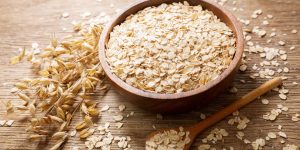It’s entirely possible for multiple people to eat the same food and only one person to get sick.
Others are reading now
Have you ever had food poisoning when none of your dining companions fell ill from the same meal?
It makes you question whether it was truly food poisoning. However, according to Ziare it’s entirely possible for multiple people to eat the same food and only one person to get sick.
Patient education is crucial
“People often come to the emergency room saying, ‘I know it’s not food poisoning because I’m the only one who got sick,” says Dr. Justin Mazur, a certified emergency physician.
Patient education is crucial because it’s quite common for not everyone to fall ill from the same bout of food poisoning. Food poisoning involves various gastrointestinal symptoms, including nausea, vomiting, diarrhea, and fever.
Also read
“Symptoms are generally attributed to food contaminated with a virus, bacteria, or, less commonly, a parasite,” Mazur said.
Factors Influencing Food Poisoning Susceptibility
Being the only person to suffer from food poisoning after a meal is puzzling but common.
One significant factor is the state of an individual’s microbiome and immune system.
“Your body may not be able to fight off the foodborne illness,” says Mazur.
The microbiome, consisting of trillions of microorganisms in your gut, plays a crucial role in your digestive health. If someone has an unhealthy microbiome, they’re more likely to experience food poisoning.
Diet and Lifestyle’s Impact on Food Poisoning Risk
Maintaining a healthy microbiome through diet is essential for reducing food poisoning risk. Mazur recommends avoiding diets high in refined carbohydrates, processed foods, and sugars while maximizing fiber, fruits, and vegetables intake.
Consuming alcohol can also harm the microbiome, making one more susceptible to pathogens.
Additionally, internal medicine physician Dr. Elizabeth Sharp noted that an inflamed gut from poor diet makes it easier for pathogens to cause infections.
A weakened immune system or lower immune reserves also makes it harder to fight off foodborne bacteria, increasing susceptibility to food poisoning.








